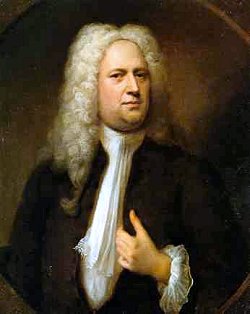History of Hymns: "O Happy Day, That Fixed My Choice" by Philip Doddridge
By Beth Spaulding

“O Happy Day, That Fixed My Choice”
by Philip Doddridge;
The United Methodist Hymnal, No. 391
O happy day, that fixed my choice
On thee, my Savior and my God!
Well may this glowing heart rejoice,
And tell its raptures all abroad.
Happy day, happy day,
When Jesus washed my sins away!
He taught me how to watch and pray,
And live rejoicing every day.
Happy day, happy day,
When Jesus washed my sins away!
As a United Church of Christ minister with roots in New England Congregationalism, I have long been proud to share the heritage of the great hymn writer, Isaac Watts. Much has been written about Watts and his many hymns that are sung today. In this month of August, I am choosing to look at hymns from hymn writers that were either contemporaries of Watts or followed in his footsteps.
The text of the hymn “O Happy Day” was written by Philip Doddridge (1702-1751), an English Non-Conformist minister (meaning that he rejected the Church of England; in fact, his grandfather was also a minister who was removed from his pastorate for his non-conformity). Doddridge’s father was an oilman in London. Philip was one of twenty children, and was thought to be stillborn. He was offered University training for ordination in the Church of England by the Duchess of Bedford, but he declined, saying he preferred “to take his place among the Dissenters.” Instead, he entered a non-conformist seminary. For most of his career his served at the Castle Hill Meeting House in Northampton, now known as the United Reformed Church, located on what is now called Doddridge Street.
As Doddridge began his ministry in Northampton, he met with other nonconformist or dissenting ministers who were interested in establishing an academy for students who wanted to enter the ministry but not in the Church of England. The academy continues today, under the name of Daventry Academy.
As part of his academic and pastoral work, Doddridge developed close relationships with numerous early religious revivalists and independent thinkers, including Isaac Watts. Under Watts’ influence, Doddridge became a prolific author and hymn writer. His best known work of prose was The Rise and Progress of Religion in the Soul, written in 1745 and dedicated to Isaac Watts. This work was widely reprinted, and it is said that the leading English abolitionist William Wilberforce began his journey to his conversion through reading it.
Among his better known hymns include “Awake, My Soul, Stretch Every Nerve,” “Great God, We Sing Your Mighty Hand,” “Hark, the Glad Sound!” “How Gentle God’s Commands,” and perhaps his best-known hymn, “O Happy Day, That Fixed My Choice.” Queen Victoria chose the hymn to be sung at the confirmation of one of her daughters.
The original name Doddridge gave to “O Happy Day” was “Rejoicing in our Covenant. Engagement with God.” While this title does not move as easily off the tongue as “O Happy Day,” it is easy to see why he gave that name to this text. The hymn is filled with images of the covenant, an ideal which was extremely important to the nonconformist and dissenting clergy, who would eventually bring it with them to New England as part of Puritan theology. When Doddridge was a young boy, he made a covenant with God and wrote it down, reviewing it every year and asking God’s pardon for his failure to keep it as faithfully as he wished.
The first stanza sets up this idea of covenant immediately with the phrase “that fixed my choice.” A later stanza rejoices in the completion of “the great transaction,” and that “I am the Lord’s and he is mine,” emphasizing the covenantal agreement. Another stanza includes the phrase, “rest, my long-divided heart,” perhaps pointing to the conflict within him concerning whether to live out his calling in the Church of England or as a Dissenting minister. Once the choice had been made, the refrain calls for rejoicing that he had been taught to “watch and pray,” and that Jesus “had washed my sins away.”
A unique feature of this hymn is that the stanzas and refrain come from two different sources. The tune for the stanzas is called O HAPPY DAY and while it is sometimes referred to as an anonymous tune, others have stated that Edward Rimbault (1816-1876) was in fact the composer. The refrain is said to have come from the 1854 Wesleyan Sacred Harp, which makes sense in that Doddridge was said to have been acquainted with both John Wesley and George Whitefield, the latter having visited Doddridge’s academy in Northampton at his request. In the Preface to his Notes on the New Testament, John Wesley stated that he was indebted to “the late pious and learned Dr. Doddridge for some useful observations.”
Doddridge is said to have written his hymns as summaries of his sermons and intended to help his congregation express their response to what they were being taught.
As Doddridge was dying of tuberculosis at the age of forty-nine, his wife is said to have seen his lips moving and asked if he needed anything. “No,” he responded, “I am only renewing my covenant engagements with God.”
Works consulted include Irene Parker, Dissenting Academies in England; Geoffrey Nuthall, Philip Doddridge; Robert Strivens, Philip Doddridge and the Shaping of Evangelical Dissent.
About this month’s guest writer:
Beth Spaulding recently received her PhD in liturgical studies from the Boston University School of Theology. This year marks the 20th anniversary of her ordination in the United Church of Christ. She lives in Somerville, Massachusetts.
Contact Us for Help
View staff by program area to ask for additional assistance.
